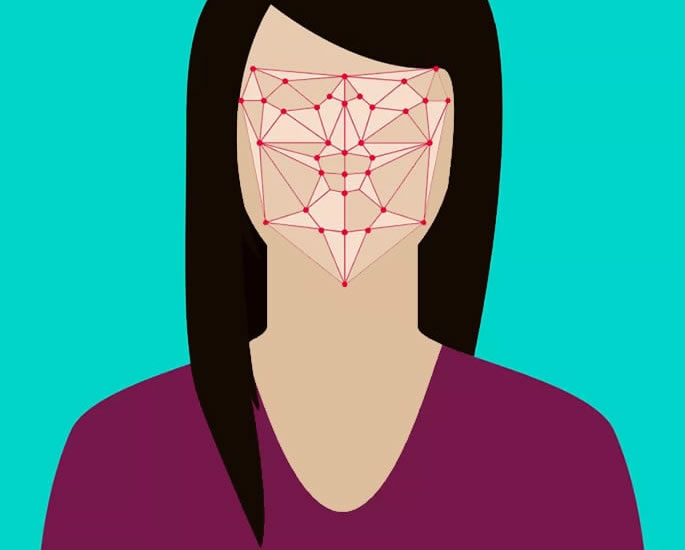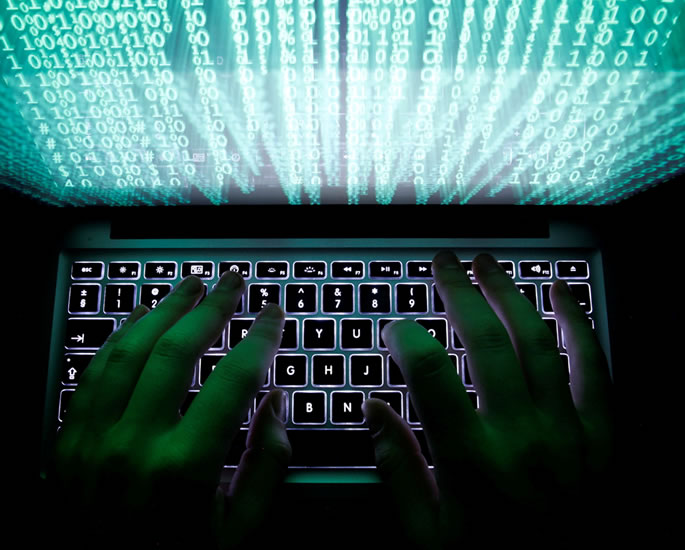"it looks real which is pretty disturbing.”
Artificial intelligence (AI) programs have been a widespread phenomenon, with deepfake software on a consistent rise.
But with new technology comes new problems and breaches in security.
Women in particular have been negatively affected by the rise in deepfake technology.
This has caused them to be harassed, bullied and victims of revenge porn.
DESIblitz looks at how deepfakes are affecting women and the level of concern Desi women have over the rise in this aspect of technology.
What are Deepfakes?
Deepfakes are videos and images of people which have been technologically manipulated.
Faces or bodies of individuals are digitally changed to give the appearance of someone else.
This technology is artificial intelligence-based and uses a ‘deep learning’ form of AI that allows individuals to manipulate visual content.
However, as intricate as this technology is, there have been many concerns over its uses as it has commonly been used to spread false information or for malicious intent.
Jaya Singh says: “To put it lightly, I think it’s really strange.
“The fact that your face could be placed on someone else’s body is mind-blowing. It looks convincing as well like it looks real which is pretty disturbing.”
Therefore, the concept of deepfake imaging itself is something that individuals are finding strange and unsettling.
Whilst deepfake technology has been around since the late 1990s, the methods have since been developed as more individuals are beginning to use it within industries and recreationally.
For instance, celebrities like Kim Kardashian have experimented with the world of deepfake technology when she posted a holographic moving video featuring her late father Robert Kardashian.
The technology is now widely used and easily accessible to individuals across the globe and it is only advancing.
The Rise of AI
Artificial intelligence is a type of computer science that can develop computer and software programs with human-like intelligence.
This essentially means digital computers have the ability to perform tasks that are commonly associated with humans and other intelligent beings.
However, there are individuals who are concerned over the growing power of AI programs like deepfake imaging which infringes on the consent and privacy of individuals.
Jaya Singh said: “I wouldn’t say it’s a downright problem or an issue, but it is definitely concerning.
“I think it depends on the industries that are taking advantage of it.”
Industries across the globe are actively using AI methods to help advance and improve their structures.
It has been used not only in the computing world but in healthcare, construction, retail, transportation, finance, and even entertainment industries.
These are only a few of the industries where AI is being used and individuals are finding that is improving productivity.
Taran Bassi said:
“As a whole, I think it will be helpful for certain industries as it allows us to be productive and use our time wisely.”
In the healthcare industry, AI has proven to improve patient outcomes, reduce costs, and build new data.
For instance, this computer science even proved useful in the creation and distribution of the Covid-19 vaccine as it fostered time efficiency and built actionable data.
Despite the positives of AI, there still remain concerns over its growing power affecting jobs and infringing on security and privacy.
Though industries have found AI software useful and could potentially create new jobs, research conducted by the World Economic Forum indicates that around 20% of existing UK jobs may be displaced by AI by 2037 which equates to 7 million jobs across all sectors.
Deepfakes & Revenge Porn
Although deepfake technology is impressive, it has its drawbacks and major security concerns due to how realistic it can be.
As mentioned, many individuals have used deepfake technology with malicious intent, specifically in sharing non-consensual pornography, also known as revenge porn.
Revenge porn involves sharing sexually explicit images or videos of individuals without their consent and is usually done with malicious intent behind it.
With the addition of deepfakes, revenge porn has reached new levels as they have been used in this context to harass, bully and blackmail women.
In a BBC interview, 30-year-old Katie Isaacs described the fear and horror she felt upon discovering a deepfaked pornographic video of herself that was circulating on the internet.
She said:
“It was a violation – my identity was used in a way I didn’t consent to.”
Cases like Katie’s are unfortunately very common, and women are understandably upset by the lack of awareness around the issue.
Taran Bassi says: “The porn industry as a whole has a lot of issues in terms of privacy and distribution, so I think deepfake porn is something we need to be discussing and raising awareness of.”
Many places like the UK have put in place laws that criminalise revenge porn and malicious distribution of deepfake porn.
Like the AI industry, deepfakes are only on the increase, meaning more individuals may be at risk of being victims of deepfake porn despite its illegality.
Harmanpreet Kaur says: “I think celebrities will be impacted by it on a larger scale than the public.”
Indian celebrities such as Pooja Hegde and Samantha Ruth Prabhu have been the subject of deepfaking as their pictures are easily accessible on Google and on social media.
This suggests that deepfake images and deepfake porn are more likely to affect those in the constant public eye.
A Threat to Women’s Security
Considering deepfakes can be mistaken for real images, the damage to people’s lives and reputations can sometimes be irreparable.
This damage especially impacts the lives and security of women as research has shown how women are disproportionately affected by the spreading of deepfakes and revenge porn.
The rise in deepfakes has also deterred many individuals from posting bikini pictures and selfies due to the fear of them being exploited by deepfake technology.
Taran Bassi said: “I rarely post on social media anyway, however, the rise of AI does make me more cautious and slightly paranoid about how much information about me can be found online.”
When discussing women’s safety regarding the growing exploitation prompted by the rise in AI and deepfake imaging, there were varied opinions.
Taran Bassi continued: “I think governments and authorities need to be introducing better legislation so that women are safeguarded in terms of issues such as this.”
But this sentiment has not been shared by all women as some believe the issue hasn’t quite reached the heights of severity.
Harmanpreet Kaur has said it hasn’t deterred her social media activity:
“I’m active on Instagram and I enjoy sharing snippets from my daily life and nights out and stuff so with that, I expect a certain level of exposure but as usual, I am particular about what I share and what I purposely share with close friends.”
While some women believe the authorities need to be more proactive in defending women’s security, there are others who are yet to see the severity of female exploitation from deepfake technology.
South Asian Awareness of Deepfakes
Although the awareness of deepfakes is a global issue, not all communities may be aware of these new AI-generated forms or the latest dangers that come with posting pictures online.
The South Asian community is one that is likely to have differing opinions and levels of awareness due to cultural attitudes and generational differences.
Speaking to individuals in the community, there is a consensus that more caution needs to be given regarding online safety with the rise of deepfakes.
Harmanpreet Kaur said: “As with everything, there are risks when sharing information online, but I think we should all just be careful in terms of posting online and trusting our gut.”
Jaya Singh also had a similar view on approaching social media with caution and the current awareness of online safety in the community. She said:
“I think generally we are, but I don’t think we should drastically change our habits in fear of AI and deepfaking.
“I guess we just need to be aware and cautious when sharing our lives online.”
Although it appears to be an obvious point, taking caution when posting on social media may be an excellent idea to ensure online safety.
However, not everyone in the community may be aware of how they can be cautious, which is why education campaigns and community outreach programs may be beneficial.
Though deepfake technology is new and exciting, it is always beneficial to approach such advancing technology with caution.
Deepfakes and the growing expansion of this AI-generated technology continues to pose deep threats to the lives and reputations of women.
Whilst the technology has been highly praised in some industries for advancing data, women have a right to be concerned about how this technology is used and who has access to it.
As Desi women have also stated, there needs to be more awareness and caution regarding deepfake technology, especially in the South Asian community where knowledge of this matter appears sparse.
As a whole, communities and governments may need to increase strategies that can detect and prevent deepfake technology from being used in malicious ways and further education is defiantly needed on the topic.


































































